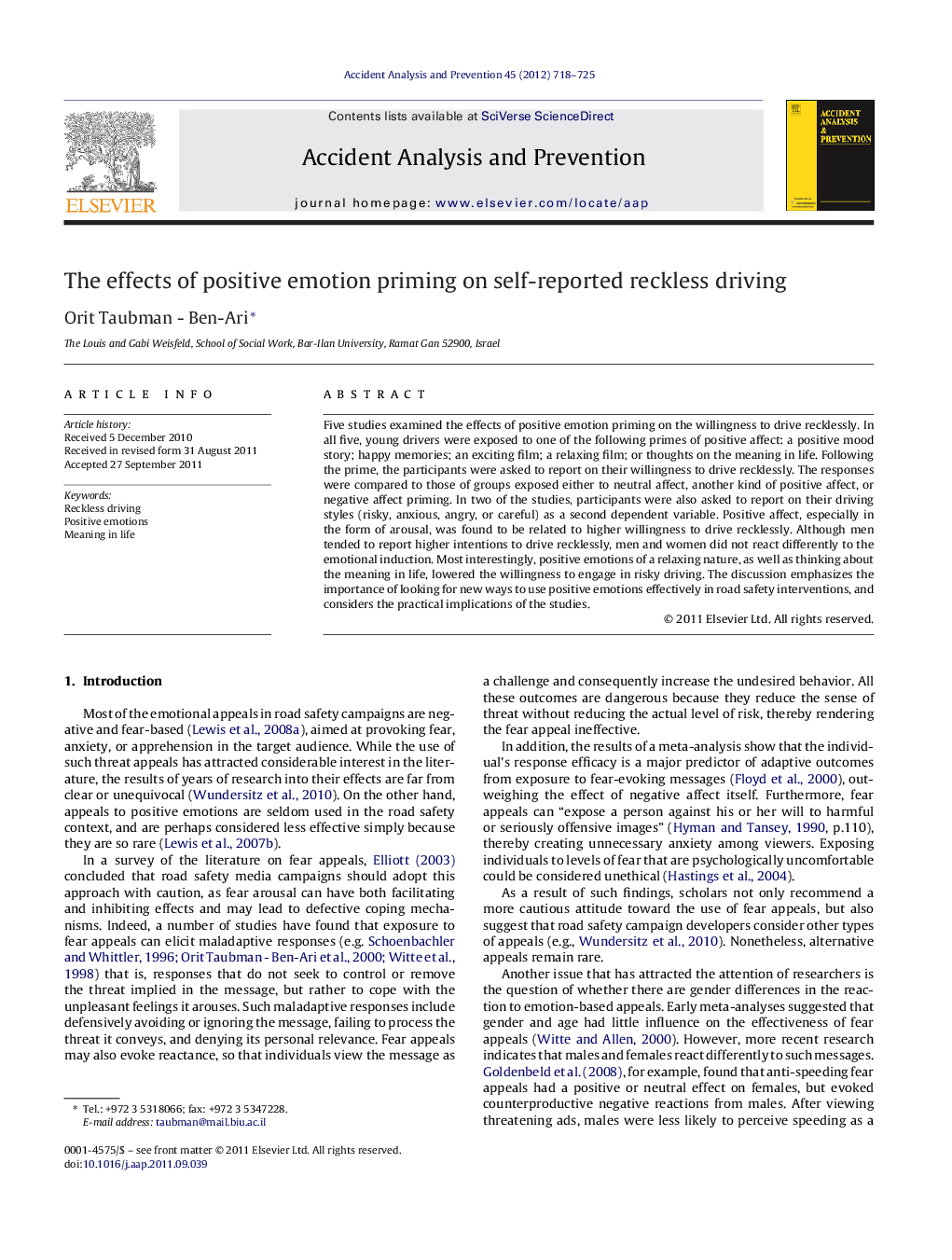| Article ID | Journal | Published Year | Pages | File Type |
|---|---|---|---|---|
| 6967444 | Accident Analysis & Prevention | 2012 | 8 Pages |
Abstract
Five studies examined the effects of positive emotion priming on the willingness to drive recklessly. In all five, young drivers were exposed to one of the following primes of positive affect: a positive mood story; happy memories; an exciting film; a relaxing film; or thoughts on the meaning in life. Following the prime, the participants were asked to report on their willingness to drive recklessly. The responses were compared to those of groups exposed either to neutral affect, another kind of positive affect, or negative affect priming. In two of the studies, participants were also asked to report on their driving styles (risky, anxious, angry, or careful) as a second dependent variable. Positive affect, especially in the form of arousal, was found to be related to higher willingness to drive recklessly. Although men tended to report higher intentions to drive recklessly, men and women did not react differently to the emotional induction. Most interestingly, positive emotions of a relaxing nature, as well as thinking about the meaning in life, lowered the willingness to engage in risky driving. The discussion emphasizes the importance of looking for new ways to use positive emotions effectively in road safety interventions, and considers the practical implications of the studies.
Related Topics
Physical Sciences and Engineering
Chemical Engineering
Chemical Health and Safety
Authors
Orit Taubman - Ben-Ari,
